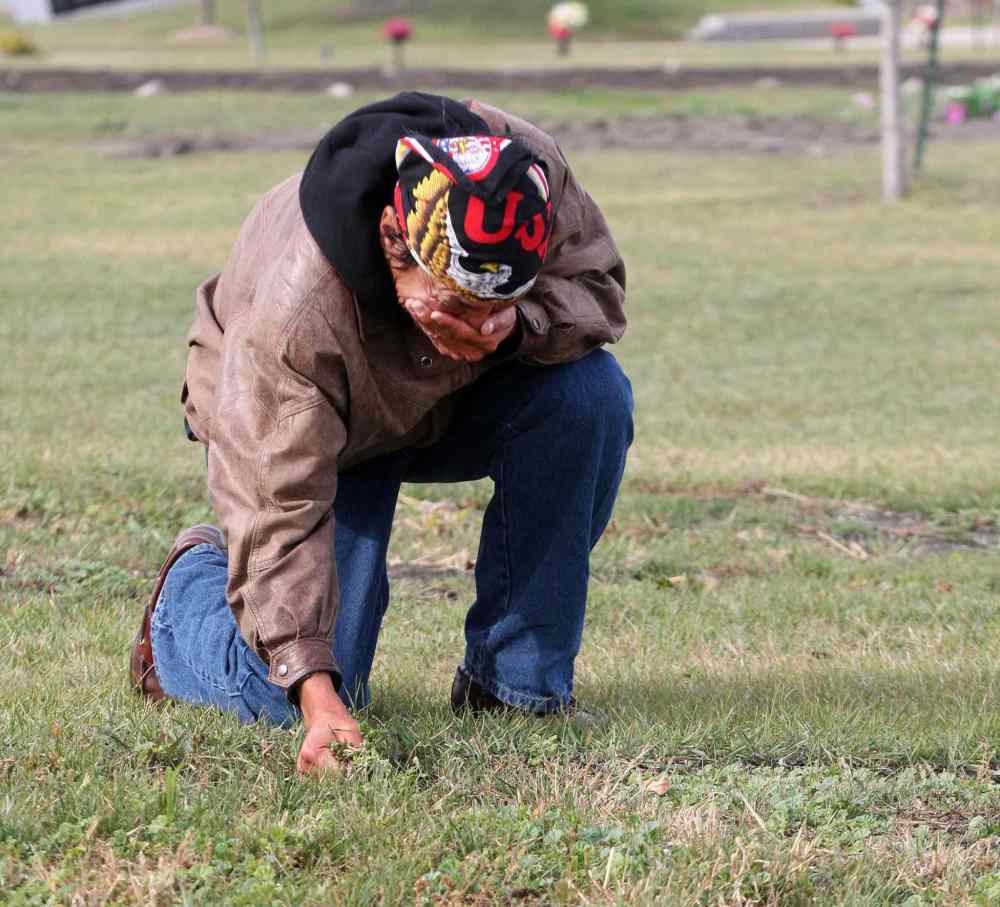Even the Homeless Hero needed to be rescued
Advertisement
Read this article for free:
or
Already have an account? Log in here »
To continue reading, please subscribe:
Monthly Digital Subscription
$19 $0 for the first 4 weeks*
- Enjoy unlimited reading on winnipegfreepress.com
- Read the E-Edition, our digital replica newspaper
- Access News Break, our award-winning app
- Play interactive puzzles
*No charge for 4 weeks then billed as $19 every four weeks (new subscribers and qualified returning subscribers only). Cancel anytime.
Read unlimited articles for free today:
or
Already have an account? Log in here »
Hey there, time traveller!
This article was published 19/08/2014 (3739 days ago), so information in it may no longer be current.
I remember the first time I saw Faron Hall.
And all the times, when I called him or he called me.
What I remember most vividly, though, is the last time I saw him.

The first time was five years ago.
I was standing by the Red River, the deceptively deep, muddy waterway with the deadly undertow that, now that I think about it, was much like the man himself. The day before, Faron had been intoxicated when he dove into the fast-flowing, frigid spring water to rescue a man who had fallen in.
The media called him the Homeless Hero.
And politicians bestowed awards and posed with the First Nations man most people had only seen as a panhandling alcoholic until he risked his life to save another.
If they noticed him at all.
When Faron saved another person from the same river a few months later, this time a woman, and he blamed himself because he couldn’t rescue her male partner — I saw Faron again.
“We’ve got to stop meeting like this,” he said.
He said it with a laugh.
And then, suddenly, he began sobbing about not being able to save his other friend from being swept away.
The last time I saw Faron was in the early hours of Tuesday morning, four days after he was seen drowning in the same river, and two days after police and fire crews pulled his body from the same river.
Faron came to me in a dream.
— — —
I don’t know how many columns I’ve written about Faron over the years. Some would say one was too many.
What I do know is it’s rare to have someone who is the subject of a story become more than a story to me.
Faron was that exception.
I never witnessed, or even imagined, the Faron described in other headlines: the drunken, desperate, angry and aggressive panhandler and shoplifter who ended up going to jail, and then going to jail again and again for breaching his court order against being drunk in public.
It was the other, kind, gentle and thoughtful Faron his friends and I knew.
It was his intelligence, honesty, vulnerability and the way he struggled to survive that brought us close.
His sense of humour was the glue for all of that.
But after Faron was gone, I realized what the bond really was.
He was a rescuer.
I know, given his heroics, that sounds obvious.
But it’s not.
As I’ve written, Faron’s ghosts followed him as he walked and slept on the streets and riverbanks of Winnipeg.
But in my view, his need to rescue and help was the result of not being there to rescue his mother when she was murdered on Main Street. It was, as he would tell me, the event that plunged Faron, the university student, over the edge emotionally.
Why do I think he became a rescuer because of his mother’s tragic death?
Because I couldn’t rescue my mentally ill mother, either.
And I suffer from the same compulsion to rescue those who reach out to me.
Faron was one of those people who reached out to me.
Last fall, at the annual CEO Sleepout at Portage and Main, which is supposed to shine a light on homelessness, I heard that Faron had been around looking for me.
One night soon after, he reached me on my cellphone.
He didn’t say who was calling. He didn’t have to.
“We have to stop meeting like this,” he laughed.
He sounded drunk, and he wanted to meet at a downtown doughnut shop.
It was 9:45 p.m.
He didn’t say why he wanted me to drive across town to meet him. He just wanted me to come.
So I went.
The reason, as it turned out, was his uncle, Wilson Hall, being buried in a pauper’s grave at Broookside Cemetery, without his family being notified and while Faron was in jail.
Faron was standing outdoors on the street, weeping, and all I could do was hug him and tell that I would take him to see the grave, which had a number but no name. Maybe that would make him feel better.
So the next day we drove there; he wept at his uncle’s grave and said he felt better.
That was the last time I saw Faron.
Except for the very last time, in that dream. That vision.
I saw a flash of his face first, with that grin of his. And then, I saw his whole body, underwater, struggling, arms flailing, trying to reach the surface.
And no one there to rescue him.
That’s when I woke up.
That’s why I wept for my friend Faron Tuesday; I wept the way he did for the man he couldn’t save from the river.
Of course, there is little relief from understanding the obvious; from knowing no one could have saved Faron Hall.
Not even the Homeless Hero.
gordon.sinclair@freepress.mb.ca
History
Updated on Wednesday, August 20, 2014 7:52 AM CDT: Replaces photo





